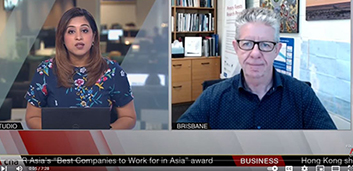
Challenges in coming to COP27 consensus - 21 November 2022
It is important for the world’s biggest emitters to step up and take action, but there are challenges in the negotiation process at the UN’s annual climate change conference, with decisions made only by consensus. Professor Brendan Mackey, Director of the Climate Action Beacon at Griffiths University, shares more with CNA’s Asia Now.
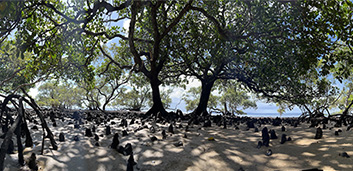
Goals for mangrove recovery must be based on science - 17 November 2022
Griffith University and scientists have worked to develop and endorse a new scientifically valid target for mangrove conservation. Mangrove conservation and restoration to combat climate change is important as mangroves store and capture significant amounts of carbon and have been historically destroyed by coastal development, aquaculture and deforestation for farming, among other threats.

Climate and human-driven habitat destruction alter bat behaviour and increase Hendra virus spillover risk - 17 November 2022
A new study that examines 25 years of data on land-use change, bat behaviour, and spillover of Hendra virus from bats to horses in subtropical Australia has revealed that human activities are causing bats to adopt behaviours previously linked to short-term nutritional stress, and that this change in behaviour is increasing risk of Hendra virus spillover.

Can we meet basic human needs without destabilising the planet? - 15 November 2022
To meet basic human needs universally across the globe without tipping the Earth system outside of environmental limits will require a redistribution of resources and a transformation of society, a new study finds. Published in Nature Sustainability, Griffith University joined an international team of scientists from the Earth Commission and Future Earth, who assessed the potential trade-offs between achieving social and environmental goals by investigating the impacts on the Earth system of all people escaping poverty and achieving a dignified life given today’s global inequalities.
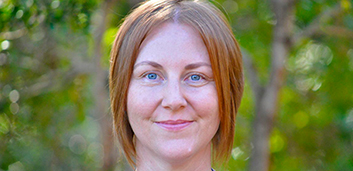
New Dean of Sustainability for Griffith University - 14 November 2022
Associate Professor Jennifer Boddy has been appointed as the University’s Dean of Sustainable Development Goals Performance. Griffith University has been in the top 100 of the Times Higher Education impact rankings for the last two years and Assoc Prof Boddy is excited to continue and enhance that track record.
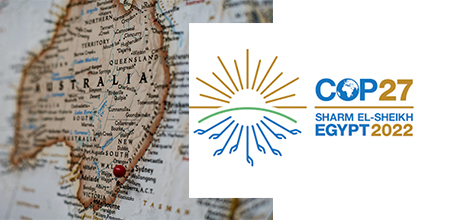
After decades putting the brakes on global action, does Australia deserve to host UN climate talks with Pacific nations? - 9 November 2022
To successfully bid for and host the UN climate talks, the Albanese government will need to show Australia really has changed by bringing more to the table, and taking coal and gas off the menu. Read more from Dr Wes Morgan.
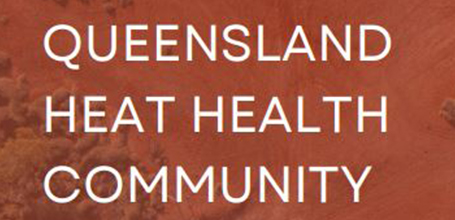
Qld Heat and Health Community of Practice - 9 November 2022
The Queensland Heat Health Community of Practice (QHHCoP) intends to improve local collaboration across sectors to assist and manage heat health related issues facing Queenslanders.

This is what Australia needs to bring to Egypt for COP27 - 4 November 2022
"At COP27, Australian officials will be lobbying to co-host the UN climate talks with Pacific island countries. But, to succeed in its bid, Australia will need to walk the talk. That means moving rapidly away from coal and gas, and helping developing nations to manage climate impacts. Read more from Dr Wes Morgan.
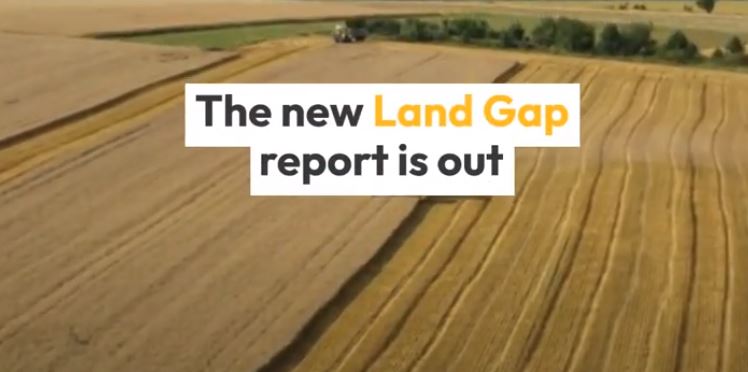
New report: Countries' climate pledges put unrealistic demands for land ahead of emissions reductions - 1 November 2022
“Fortunately, it isn’t too late for countries to rethink the way they use land to achieve their climate goals. A three-step approach that prioritizes the protection of forests and other ecosystems, then focuses on restoration and sustainable land use would help achieve climate outcomes in addition to food production, biodiversity and human rights goals,” said Prof Brendan Mackey, a report co-author and a professor at Griffith University.
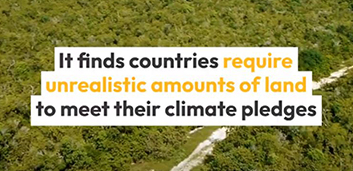
New Report: Countries' Climate Pledges Put Unrealistic Demands for Land Ahead of Emissions Reductions - 1 November 2022
“There are no shortcuts. We can’t continue cutting down standing forests if we hope to keep the planet cool. Primary forests are an order of magnitude more effective than plantations for storing carbon, making them the best option for slowing global climate change. Furthermore, protecting and restoring forests is essential for solving the overlapping biodiversity, climate change, social justice and zoonotic disease crises,” said Dr Heather Keith, a report co-author at Griffith University.
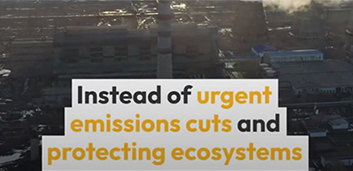
Countries’ climate pledges put unrealistic demands for land ahead of emissions reductions - 1 November 2022
Land has a critical role to play in global efforts to keep the planet cool, but it’s not a silver bullet solution. The most problematic climate plans involve transforming land currently used for other purposes, such as food production, into tree-covered areas, such as monoculture plantations. The report says that these land changes would encroach on land safeguarded by Indigenous Peoples or used by local communities and smallholder farmers to feed themselves.
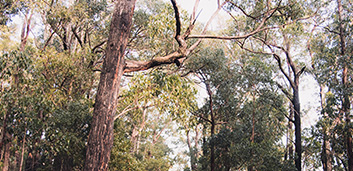
Griffith University achieves a stellar outcome for sustainability - 27 October 2022
Griffith University has been ranked 66th globally in the inaugural QS Sustainability Ranking 2023 including first in Queensland overall, and 6th in Australia for its efforts in sustainability. Griffith received a stellar commendation as the rankings assess efforts to tackle the world’s greatest environmental, social and governance challenges based on two categories: environmental impact and social impact.
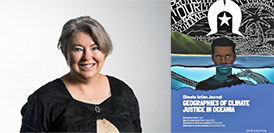
Springer Nature - Climate Action and Human Rights with Prof Susan Harris Rimmer - 27 October 2022
Prof Susan Harris Rimmer, an international human rights lawyer and the Director of the Griffith University Policy Innovation Hub, talks about how she has been addressing Sustainable Development Goal 13 as Climate Justice theme leader of the Griffith Climate Action Beacon. Prof Rimmer is also one of the Guest Editors of Climate Action’s upcoming topical collection: Geographies of climate justice in Oceania.

Taking his voice global for climate change: Angus Brawley - 25 October 2022
Griffith University electrical and electronic engineering student Angus Brawley has been selected as one of 13 new Global Voices Scholars. Mr Brawley will join the COP27 UNFCCC Climate Talks delegation in Egypt this November, after attending high-level meetings with Australian Government officials, academics, and policy experts at the Global Voices National Conference in Canberra.

Griffith Environment and Biosecurity Projects Win CAUDIT Award - 21 October 2022
Two Griffith University projects - EcoCommons Australia and Biosecurity Commons - were acknowledged with a win at the 2022 Council of Australasian University Directors of Information Technology (CAUDIT) Awards for innovative platforms set to accelerate environmental and biosecurity modelling and decision-making.
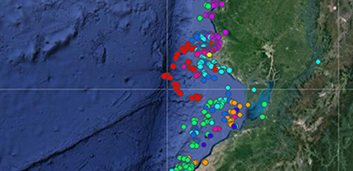
Sat tags on track to explore climate impacts on whale migrations - 18 October 2022
Ten humpback whales have been tagged with satellite transmitters off the coast of Ecuador during the 2022 migration season as part of a new partnership between the Pontifical Catholic University of Ecuador and Whales & Climate Research Program at Griffith University.

Stopping native forest logging key to getting to net zero - 14 October 2022
Leading researchers are calling for a cease to native forest logging if Australia wants to meet its net zero targets in coming decades. The researchers, from The Australian National University (ANU) and Griffith University, say only native forests can remove carbon from the atmosphere at the rapid rate required.

Call for Survey participants - 12 October 2022
If you are a Queenslander aged 75 or over, Griffith's ETHOS project group invite you to participate in our survey. We need 25-30 minutes of your time to complete a paper based survey. You can go into a draw to win one of five $100 retail vouchers.

Measuring the power of CEO purpose - 6 October 2022
Academics from Griffith Business School, including Prof Nick Barter (Transition lead, Griffith Climate Action Beacon) collaborated with a leading global consultancy firm to design and implement a survey to discover what one thousand top CEOs think about the power of a CEO’s purpose. “We’ve found that CEOs are changing their attitudes and values about issues like climate change, diversity & equity and supporting local communities. Business leaders are reflecting and adapting.”

New study provides first-ever map-based assessment of continental US mature and old-growth forests - 29 September 2022
An international team of scientists, including from the Griffith Climate Action Beacon, have released the first ever coast-to-coast, map-based assessment of mature and old-growth forests (i.e., collectively referred to as older forests) in the continental United States, in a new peer-reviewed study published by Frontiers in Forests and Global Change.
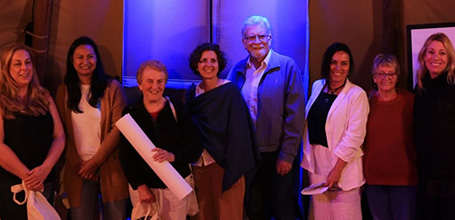
Climate impacts on beach lifestyle in the spotlight - 13 September 2022
A key research group within Griffith’s Climate Action Beacon used the backdrop of a popular Gold Coast arts event to ask the community big questions about how climate change will impact their favourite recreational activities. Associate Professor Kerrie Foxwell-Norton is behind the ‘Altered Tides: Creative coastal recreation in a climate changed future series’ hosted by Griffith’s Climate Action Beacon. This series featured a community event at the 2022 Swell Sculpture Festival.
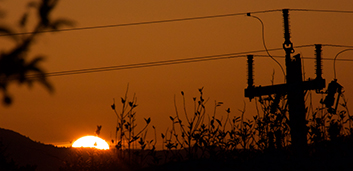
Sunny outlook on global warming’s causes denies scientific evidence - 9 September 2022
A Facebook post claims carbon dioxide emissions are not causing global warming, blaming climate change on the sun rather than human activity. However, scientists say human actions, such as burning fossil fuels, deforestation and land clearing, are causing increased greenhouse gas concentrations in the atmosphere.
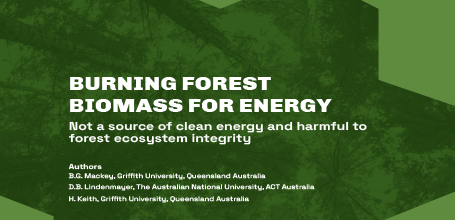
Burning Forest Biomass for Energy - 9 September 2022
The Griffith Climate Action Beacon has released a new publication - Burning Forest Biomass for Energy: Not a Source of clean energy and harmful to forest ecosystem integrity. One of the key messages from the report is that a major shift to using forest biomass burning for energy comes with grave risks of highly perverse outcomes, including increased CO2 emissions and negative impacts on forest ecosystem integrity.

Audio: Senate will debate Labor's emissions reduction target today - 6 September 2022
Climate change is back on the agenda today in Parliament. The government's bid to enshrine its 43 per cent emissions reduction target into legislation will be debated in the Upper House. ABC NewsRadio's Chris Mitchell spoke to Professor Brendan Mackey, director of Griffith University's Climate Action Beacon research program.

Pacific Islands are back on the map, and climate action is not negotiable for would-be allies - 18 July 2022
This year’s Pacific Islands Forum marked the beginning of a more dangerous era as Pacific leaders tried to find common responses to both the climate crisis and sharpening geostrategic competition. There was unprecedented interest in this year’s forum, held in Fiji’s capital Suva. I should know. I lived in Suva for much of my adult life. Hear more from Dr Wesley Morgan.
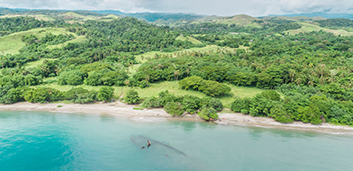
Australia under pressure from Pacific to do more on climate - 14 July 2022
The first face-to-face meeting of the Pacific Islands Forum has just wrapped up in Fiji's capital, Suva, with Australia's Prime Minister doubling down on his government's climate target, despite pressure from regional neighbours. Solomon Islands Prime Minister Manasseh Sogavare used the final day of the Forum to break his media silence, insisting there will never be a Chinese military base in his country and that Australia remains its security partner of choice.
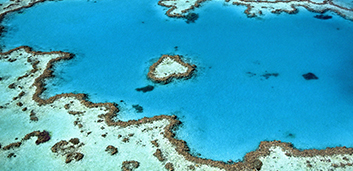
GBR among World Heritage sites where ‘In Danger’ listing is essential: experts - 14 July 2022
A team of climate and environment experts has put the Great Barrier Reef in the spotlight by calling for it to be listed as ‘In Danger’ in a wider argument to increase protection of World Heritage listed sites that are vulnerable to climate change impacts. The discussion paper, published by Griffith University’s Climate Action Beacon, proposes a structured way forward for the 21 World Heritage Committee government signatories to deal with the global threat of climate change.

US unveils major plans for Pacific region at Pacific Islands Forum - 13 July 2022
The United States has unveiled a big diplomatic push in the South Pacific - tripling economic aid to the region in an effort to counter growing Chinese influence. The announcement came at the opening of the Pacific Island Forum in Fiji. John Lyons reports from Suva including with Kamala Harris and Dr Wesley Morgan.

Will Australia’s new climate policy be enough to reset relations with Pacific nations? - 8 July 2022
Prime Minister Anthony Albanese is hoping his government’s more ambitious climate policy will help reset Pacific relations when he meets with island leaders next week. Hosted by Fiji, this year’s Pacific Islands Forum will be the first in-person leaders summit since the 2019 Pacific Islands Forum in Tuvalu,Suva. Find out more from Dr Wesley Morgan.

Tax tweaks needed to fast-charge EV take-up - 5 July 2022
Buying and running electric vehicles for business fleets is too costly under Aussie tax rules, say researchers from Griffith University and Monash University. Their report proposes practical tax changes to support home charging and allow fleet managers to quickly adopt battery electric vehicles. “Some of our recommendations could be implemented right now,” said Griffith University tax law expert and lead researcher Dr Anna Mortimore.
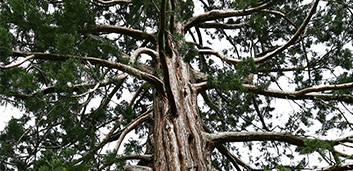
Tasmanian Liberals say younger forests are better at sequestering carbon than old-growth forests. The science says otherwise - 1 July 2022
CheckMate is a weekly newsletter from RMIT FactLab which recaps the latest in the world of fact checking and misinformation, drawing on the work of FactLab and its sister organisation, RMIT ABC Fact Check. This week, CheckMate takes an axe to claims about the ability of old-growth forests to store carbon from greenhouse gas emissions which includes statements from Prof Brendan Mackey and Dr Heather Keith of the Climate Action Beacon.

Queensland airline Skytrans unveils plans for Australia’s first hydrogen-fuelled plane - 30 June 2022
A Queensland airline has announced plans for what it claims will be Australia’s first hydrogen-electric aircraft. This article includes quotes from Dr Emma Whittlesea of the Climate Action Beacon about this project which is poised to capitalise on an “emerging” global market and the proliferation of a local green hydrogen industry in Queensland.

Skytrans, Stralis partner for Australian HEPS - 30 June 2022
Regional Australian airline Skytrans has partnered with Stralis Aircraft to develop the country's first hydrogen-electric propulsion system (HEPS) aeroplane. Griffith University is providing project support through the Climate Ready Initiative, drawing on its expertise in climate transition, aviation and tourism.
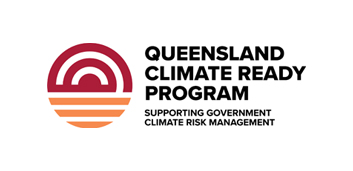
Queensland Climate Ready Program update - 9 June 2022
The Queensland Climate Ready Program supports delivery of the Queensland Climate Action Plan, which requires Queensland Government agencies to report their climate change actions and identify and manage climate risks. Griffith University is working with the Queensalnd Government on this Program.
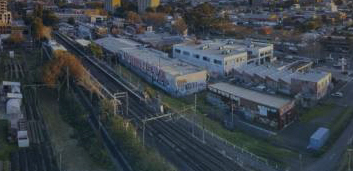
Support coming for associations to be ClimateWise - 9 June 2022
A strategically important new program is being developed which aims to advance wide-scale emission reduction and climate preparedness across Australian industries and communities, by supporting associations. With their extensive membership and networks, associations reach into and influence every business, profession, and community across Australia.

Australia's Energy Grid and Policy - 17 June 2022
In light of recent power uncertainty across five states in Australia and the Australian Energy Market Operator warning of possible power interruptions, hear from Prof Brendan Mackey, Climate Action Beacon, Director, in this interview on ABC Brisbane with Rachel Mealey about Australia's Energy Grid and energy policy.
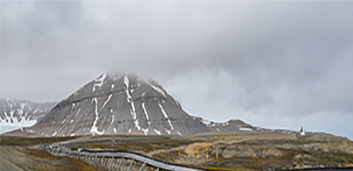
Carbon dioxide has hit a level not seen in four million years - 7 June 2022
Carbon dioxide in the Earth’s atmosphere has hit levels not seen in at least four million years, with scientists warning that the effects of climate change will only worsen in Australia and around the world without swift action to curb emissions. Prof Brendan Mackey, Climate Action Beacon, Director, features in this article.

Community Radio and Climate Change - 14 May 2022
Listen to a Podcast from Rob Cameron with Assoc Prof Kerrie Foxwell-Norton who is discussing the Climate Action Beacon campaign to use community radio across Australia to promote the need to address climate change.

Scientists honoured for contributions to sustainability research - 27 May 2022
Two Griffith University researchers dedicated to creating a more sustainable world have been recognised for their contributions as elected Fellows of the Australian Academy of Science. Australian Rivers Institute Director Professor Stuart Bunn and Centre for Catalysis and Clean Energy Director Professor Huijun Zhao join 20 other distinguished researchers from around the country awarded the honour in 2022.

Australia could rapidly shift to clean transport – if we had a strategy. So we put this plan together - 11 May 2022
Australia has no clear strategy to decarbonise transport. That’s a problem, because without a plan, our take-up of clean technologies like electric cars, trucks and buses is slow. It’s stopping us from meeting our climate commitments. And it leaves us paying exorbitant prices for imported oil at the fuel pump, as well as in the cost of groceries and services. Read more including from Dr Emma Whittlesea, Program Manager, Climate Ready Initiative.

The world doesn’t care about swings in marginal seats. Climate action must spearhead a new Australian foreign policy - 9 May 2022
Late last year, more than 100 former diplomats and officials called for a new Australian foreign policy — with climate action at the centre — to help cement Australia’s future in a world rapidly shifting to net-zero emissions. Read further an article from Dr Wes Morgan of Griffith University.
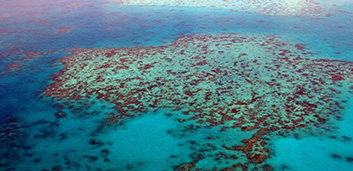
GBR management methods at odds with climate change threats - 3 May 2022
A study into the management and attitudes of key stakeholders operating in the Great Barrier Reef region has found that past and current approaches do not adequately address climate change threats to the reef or likely losses of species, habitats and processes. Dr Wade Hadwen from Griffith University’s Australian Rivers Institute and Climate Action Beacon and Lisa Walpole from Alluvium Consulting published the results in Ecology and Society.
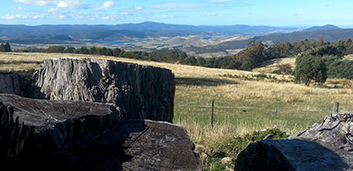
Tasmania goes net carbon negative by reducing logging - 3 May 2022
Tasmania has become one of the first jurisdictions in the world to reduce their carbon dioxide (CO2) emissions and increase removals to become net carbon negative, according to new research from The Australian National University (ANU) and Griffith University.
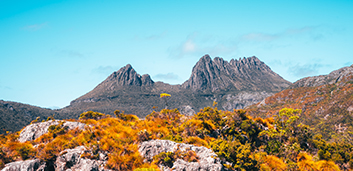
Trees help Tasmania go 'carbon negative' - 3 May 2022
Under the canopies of Australia's native forests, carbon pollution is quietly being removed from the atmosphere. It's a natural process that could play a major role in reducing Australia's contribution to climate change according to new research. Hear from Prof Mackey on ABC RN Breakfast.

Explore the Sustainable Development Goals - May 2022
Join Griffith Vice Chancellor, Professor Carolyn Evans, and a range of experts from the University’s community, to explore the SDGs and understand what must be done to address them and how we can learn from the work already being carried out around the world.
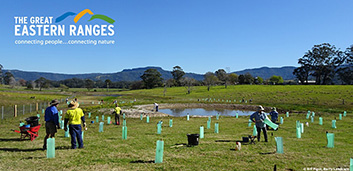
Connecting people, connecting nature conference - May 2022
Join leading local and international experts at this two-day, high-level event to learn about the science and practice of connectivity conservation, and how it can help meet our planetary challenges. Hosted by the Great Eastern Ranges (GER), this event is an opportunity to hear from key connectivity conservation experts from Australia and around the world. Prof Mackey will be presenting at the conference.

Tasmania ‘first to become carbon negative’ - 3 May 2022
Commenting on Tasmania becoming one of the first jurisdictions in the world to become net carbon negative, Prof Mackey outlined - “Changing forest management in native forests to avoid emissions from logging along with enabling natural forest growth is an effective strategy that can rapidly reduce emissions and simultaneously increase removals of CO₂ from the atmosphere”.

Tasmania slowed logging and became one of first carbon negative places in the world - 2 May 2022
Unlike mainland Australia, Tasmania relies mostly on hydroelectric power. As a result the state’s main cause of greenhouse gas emissions was logging in native forests. When old-growth forests were logged, massive amounts of carbon were released into the atmosphere.
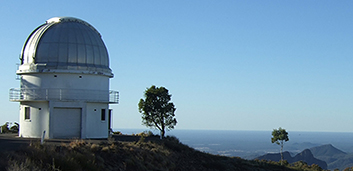
Leaving Coonabarabran - Who will be Australia's climate refugees? - 1 May 2022
Griffith Review (online) has a published a thoughtful and personal piece from Prof Susan Harris Rimmer, the Founder of the Observatory, about her hometown in Central West New South Wales, the events that have impacted her and the community, and the climate justice questions these events have raised.

Inflation, Floods and Preparing for War - 28 April 2022
As we near the halfway point of the election campaign, this week Q+A is live from Australia’s fastest growing city, Brisbane. Thirteen people lost their lives in the devastating February floods and record-breaking rains impacted tens of thousands of homes and businesses in the city, with the final clean up bill still not yet known. How is the city recovering and what more needs to be done to help residents and businesses get back on their feet? Hear from Prof Caitlin Byrne and other guests on ABC Q+A.
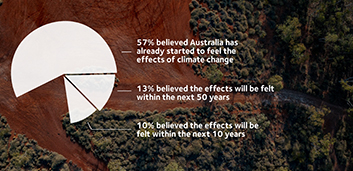
What Australians really think about climate change: survey - 28 April 2022
One of the most ambitious climate change surveys conducted in Australia has found three out of four Australians are concerned about it and support policies that limit its potential impacts. Results of the Climate Action Survey, carried out by Griffith University’s Climate Action Beacon, showed while climate change concerned a minority of Australians a decade ago (34%), in 2021 it was a mainstream issue that caused concern among the majority of Australians (72%) who demanded government action.
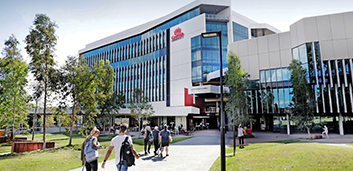
Griffith recognised as a leader in sustainable development - 28 April 2022
Griffith University has been ranked first in Australia for its performance against the United Nations’ Sustainable Development Goal (SDG) 16 – Peace, Justice and Strong Institutions – in the Times Higher Education (THE) Impact Rankings 2022. The University was also ranked number one in Queensland for its progress against SDG 11 – Sustainable Cities and Communities.
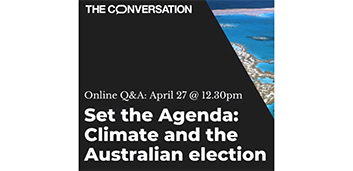
Webinar recording - Set the Agenda: Climate and the Australia election - 27 April 2022
Dr Wes Morgan joined the Panel hosted by The Conversation to discuss how the major parties’ policies on climate stack up in the lead up to the federal election. The audience asked the experts their own climate questions and heard what respondents to The Conversation’s #SetTheAgenda poll had to say about climate change.
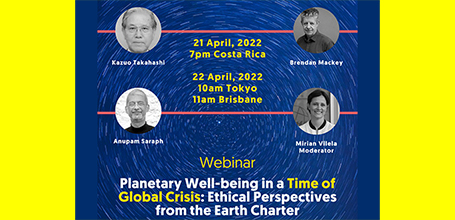
Earth Charter Webinar recording - 22 April 2022
A recording from the webinar - Planetary Well-being in a Time of Global Crisis: Ethical Perspectives from the Earth Charter - is now available for viewing. Prof Mackey presented at this webinar which was hosted by the Earth Charter, Okayama University and the Griffith Climate Action Beacon.
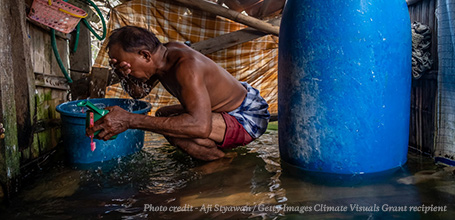
Where are we at with climate justice? - 5 April 2022
Hear from Prof Sue Harris Rimmer (Head of Research - Justice) from the Climate Action Beacon discuss how we are dealing with climate change and it's impact on our lives, can the law help, and what else can we do to improve climate justice for those most affected, in this interview on ABC Radio National (RN) on Life Matters with Hilary Harper.

Webinar recording - Gold Coast Community Conversation: Reflections on the Latest IPCC Report - 31 March 2022
The Climate Action Beacon in conjunction with Gecko Environmetal Council held a webinar about the latest IPCC report and what it means for the Gold Coast Community. Director of the Climate Action Beacon, Prof Brendan Mackey, summarised the IPCC report findings relevant to Australia and the Pacific region, and translated these impacts to the Gold Coast context.

Sustainability - the system as a whole - March 2022
Dr Saffron Benner links the seemingly disparate disciplines of theatre and sustainability and points out that whether you're trying to create a meaningful performance, or achieve the United Nations' SDGs, you need to see how the many moving parts work together.

Are you part of the green or climate workforce? - March 2022
Climate change is an existential threat, but there is an ever-increasing workforce out there tackling it head on. You might not consider your skill set is ready to mitigate climate change, but Assoc Prof Michael Howes points out you may already have the tools to get started in the green workforce.
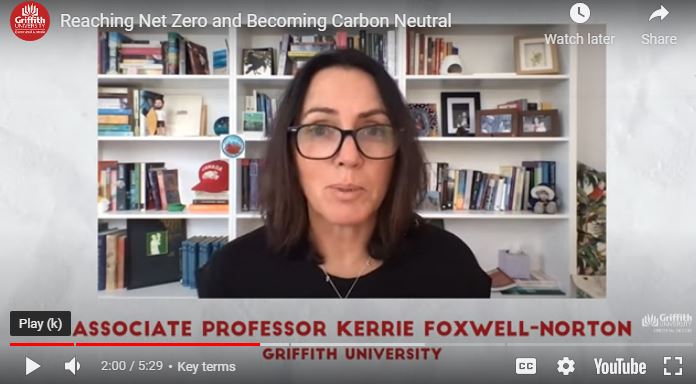
Reaching next zero - March 2022
In the race to take action against climate change a lot of terms are thrown around – “net zero”, “carbon neutral”, “carbon negative”. But what do they even mean? We unpack some of these terms and ask the question – what can humans actually do to reverse the negative impact on the environment? Featuring: Assoc Prof Kerrie Foxwell-Norton from Griffith University and YouTuber Julian O’Shea who break down the concepts and help us understand what’s behind the language, and how you can take action.
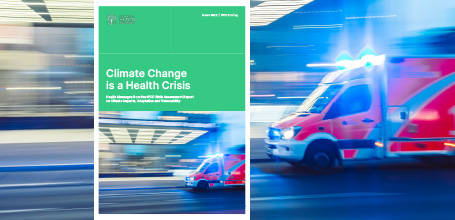
Climate Change is a health crisis - 22 March 2022
A report by the Climate and Health Alliance and reviewed by Sue Cooke of Griffith University and others, summarises the key health messages from the IPCC Sixth Assessment Report on Climate Impacts, Adaptation and Vulnerability. It is intended to help health stakeholders and decision-makers to better interpret and integrate the information into action.
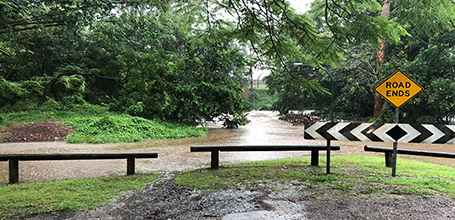
Climate Council says too many leaders are silent on global heating’s role in ‘megafloods’ - 7 March 2022
This article from The Guardian includes a mention from Prof Mackey, IPCC Coordinating Lead Author about projections of an increase in the intensity of heavy rainfall events.

Some difficult, expensive decisions will have to be made by whoever wins this election - 6 March 2022
See the Alan Kohler opinion article including from Prof Mackey about the floods, bushfires and cyclones and the recently released IPCC report.
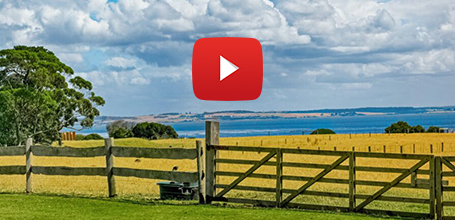
Webinar recording about key risks and adaptation - 4 March 2022
Learn about key risks and adaptation responses in this webinar recording. It was the second webinar hosted by the National Environmental Science Program (NESP) and the Climate Action Beacon (CAB). The Chair was Prof Brendan Mackey and the panelists were Prof Gretta Pecl (UTAS), Kevin Hennessey (CSIRO and IPCC lead author) and Assoc Prof Sarah Boulter (NESP Climate Adaptation Leader).
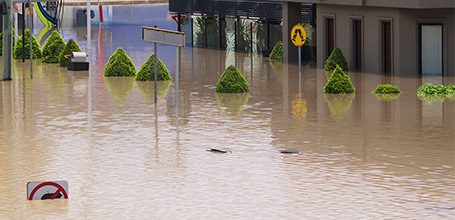
Flooding and Storms Wreak Havoc for Australian Scientists - 4 March 2022
Recording-breaking rainfall has caused widespread flooding and devastation in Queensland and New South Wales, forcing the closure of some university campuses. Read more about rainfall and flooding including from Prof Mackey .

Rainfall and flooding - 3 March 2022
Hear Prof Mackey on ABC Gold Coast Breakfast program being interviewed by Nicole Dyer about the IPCC report- Climate Change 2022: Impacts, Adaptation and Vulnerability, including what it means for rainfall and flooding. Listen from 2:09:51.

Climate Council webinar recording - 3 March 2022
The Climate Council webinar recording - The Special Briefing: What you need to know about the latest IPCC report - is now available. It featured a community panel - Prof Brendan Mackey, Yessie Mosby and Dr Kate Charleswork - and was facilitated by Amanda McKenzie of the Climate Council.
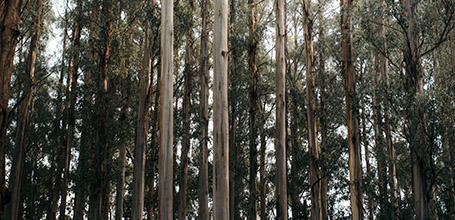
IPCC report: Australian coral, kelp, alpine and some forest ecosystems at risk of irreversible damage due to climate change - 2 March 2022
Some of Australia's iconic and unique natural ecosystems may disappear for good if we keep emitting carbon at current rates, climate experts warn. Read further an indepth article in ABC Science including with Prof Mackey considering possible impacts on biodiversity including in Alpine regions, coral reefs and forests.

Answering your questions about the IPCC Working Group II - 2 March 2022
Hear from Prof Mackey (Director, Climate Action Beacon & IPCC Coordinating Lead Author, Australasia chapter) and Prof Gretta Pecl (IPCC Lead Author of various chapters) discuss the newly released IPCC report and impacts on Australasia and projected risks. This webinar was the first in a series of two, presented by the National Environmental Science Program and the Climate Action Beacon.
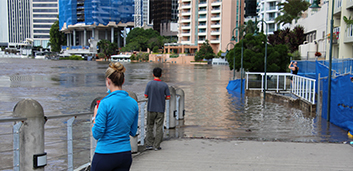
The ripple effects of climate change are there for all Australians to see - but what to do? - 1 March 2022
Once again, we have been reminded this week of the damage our increasingly volatile climate can do. But the team of Australian and New Zealand scientists who helped write the latest IPCC assessment report have identified a new climate-related risk: cascading impacts.
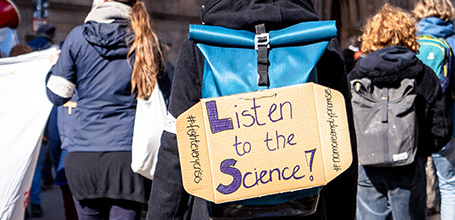
Interview with ABC Newcastle - 1 March 2022
Listen to Prof Brendan Mackey discuss the scientific IPCC Report including what it says about compounding extreme weather events and cascading impacts, and the need for reducing greenhouse gases earlier rather than later. The interviewer is Paul Turton on ABC Drive - listen from 12:55.

Recording from the Australian Academy of Science - 1 March 2022
Following the release of the IPCC report about impacts, adaptation and vulnerability, the Australian Academy of Science hosted an online forum to help inform and support policy makers and those interested in ways for Australia to reduce our vulnerability to impacts of climate change. Hear from Prof Mackey along with three other Australian IPCC contributing authors.

Resilience in a crisis - 1 March 2022
Hear from Prof Brendan Mackey, Griffith University; Janelle Saffin, NSW state MP for Lismore; Shane Fitzsimmons, Resilience NSW Commissioner; and Prof David Byrne, University of Melbourne - on Triple J Hack - exploring how communities build resilience when faced with trauma and tragedy, and, why petrol prices are so expensive right now.
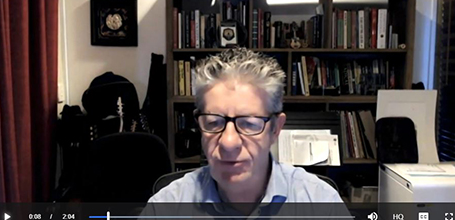
IPCC report warns of 'irreversible' global warming impacts - 1 March 2022
A major climate report has warned that governments risk missing the window to "secure a liveable and sustainable future for all". Climate expert Prof Brendan Mackey says it appears extreme weather events will be the new 'normal'.
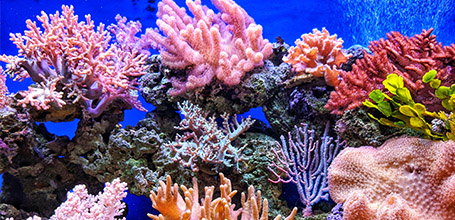
News Briefing: IPCC report on climate impacts - Aussie authors speak out - 1 March 2022
Australian scientists are among the hundreds of authors of the newly released IPCC report and the Australian Science Media Centre (AusSMC) conducted an online briefing with four of these authors, including Prof Mackey and Dr Johanna Nalau.

UN decries failed climate leadership - 1 March 2022
As flood emergencies continue across parts of New South Wales and Queensland, the latest UN climate report is warning that they're likely to become more frequent and severe. The report also concludes that no sector in Australia will be left untouched by the impacts of climate change. Listen to Antonio Guterres, UN Secretary-General; Prof Brendan Mackey, Griffith University; Prof Mark Howden, ANU; and Prof Kathryn Bowen, University of Melbourne - in an interview with Sabra Lane on ABC AM.
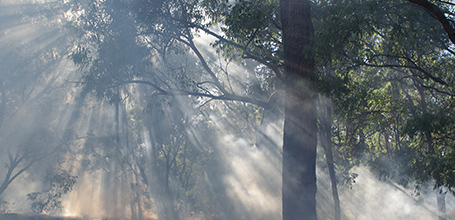
New IPCC report shows Australia is at real risk from climate change - 1 March 2022
Climatic trends, extreme conditions and sea level rise are already hitting many of Australia’s ecosystems, industries and cities hard. As climate change intensifies, we are now seeing cascading and compounding impacts and risks, including where extreme events coincide. These are placing even greater pressure on our ability to respond. While the work of adaptation has begun, we have found the progress is uneven and insufficient, given the risks we face. These findings are from our work as co-authors of the new Australia and New Zealand chapter in the IPCC report released today.
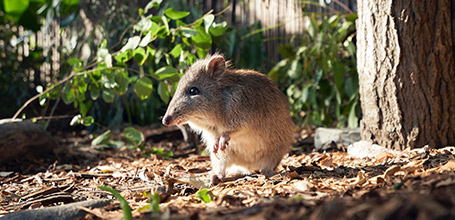
IPCC report finds global warming responsible for species' extinction - 28 Feb 2022
Warming temperatures have caused mass mortality of plants and animals around the globe, including the first climate-driven extinction in Australia, the Intergovernmental Panel on Climate Change has found. Released on Monday, the report found the threat to species was a global risk, increasing significantly with every additional tenth-degree of warming. Read more about bushfires, species extinction and the IPCC Report with Prof Mackey who was interviewed by the Canberra Times.

New IPCC report shows Australia is at real risk from climate change, with impacts worsening, future risks high, and wide-ranging adaptation needed - 28 Feb 2022
Hear from Prof Mackey and co-authors about the findings from their work as co-authors of the new Australia and New Zealand chapter in the Intergovernmental Panel on Climate Change 6th Assessment Report on Impacts, Vulnerability and Adaptation, released today.
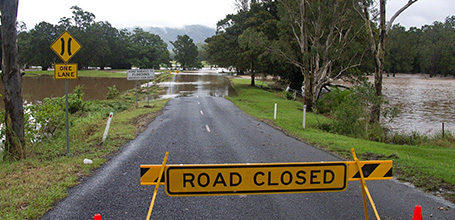
Climate scientists warn global heating means Australia facing more catastrophic storms and floods - 28 February 2022
The Intergovernmental Panel on Climate Change says climate effects expected to be more severe than initially predicted. Catastrophic flooding on the scale of the disaster hitting Queensland and New South Wales is becoming more likely as the planet heats due to greenhouse gas emissions, climate scientists have warned.

Climate change’s new industry alliance - 22 Feb 2022
Several months ago, during the on-going debates about how best to address the global climate challenge, a new alliance of business and industry was born to help advance the climate economy transformation.

New German leader proposes a ‘climate club’ - 3 Feb 2022
Hear from Dr Wes Morgan about the new German Chancellor's proposal for the G7 nations to become founding members of an international “carbon club”.

Griffith University working with the Shoalhaven City Council on community-led resilience planning - 24 January 2022
A Report "An Appetite for Action" was released in November 2021, setting out the findings from a community survey of Shoalhaven residents about responses to extreme weather events. Find out more about how the Shoalhaven Council, Griffith University and the community are working together on community-led resilience planning.

Satirical obituary for the Great Barrier Reef undermines climate action - 21 January 2022
A tongue-in-cheek editorial about the death of the Great Barrier Reef undermined efforts to build action on climate change and amplified conflict. Researchers from Griffith University and the University of Tasmania used Google Trends to trace the re-emergence of the idea of a ‘dead Reef’ back to an article from 2016. The ‘News’ of the Reef’s demise went viral and the economic and political furore that followed was immense,” said Associate Professor Kerrie Foxwell-Norton from the Griffith Centre for Social and Cultural Research and Griffith Climate Action research program.

Griffith helps Indonesia turn trash into power - 18 January 2022
Griffith University experts have delivered training to Indonesian decision makers on how to turn the country’s waste into energy. The School of Engineering and Built Environment’s Associate Professor Prasad Kaparaju led the Australia Awards’ Waste to Energy (WTE) Short Term Award course, funded by the Australian Government to explore solutions to overcome Indonesia’s waste management challenges.
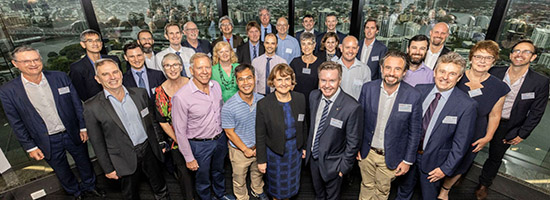
Griffth partners with industry for a clean energy future - 17 January 2022
Griffith Business School has established a new research and policy hub to help create sustainable energy solutions. The Centre for Applied Energy Economics and Policy Research is a collaboration with industry partners in the energy sector.
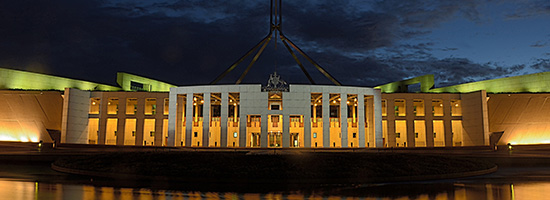
Letting the Team Down? Considering Australia’s Approach to Climate Policy after Glasgow - 10 Jan 2022
For decades, Australia has dragged its feet on climate action because national interests have been reliant on fossil fuel exports. However, the COP26 UN Climate Change Conference in Glasgow last month makes it clear that this approach will need to be reconsidered. As the world shifts toward net-zero emissions, Australia is well placed to reposition itself as a renewable energy superpower. Read more from Dr Wes Morgan of Griffith University.
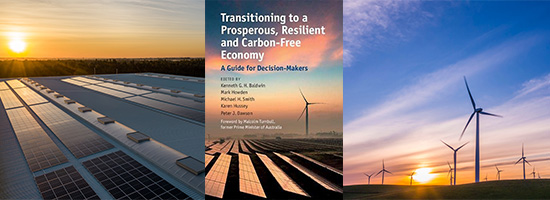
New Book Chapters in - Transitioning to a Prosperous, Resilient and Carbon-Free Economy - January 2022
Prof Brendan Mackey and Dr Heather Keith have chapters about land use and forests in the recently published book about transitioning to a prosperous, resilient and carbon-free economy - a guide for decision-makers.